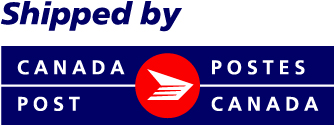Hepatitis (viral and non-viral)
Description
Alcoholic Hepatitis
An inflammation of the liver, a complication of acute and often massive alcoholic intoxication. It often occurs in association with hepatosteatosis (i.e. the accumulation of fatty acids in liver cells, known as fatty liver). In some cases, excess sugar consumption and high levels of cortisol, a stress hormone, can also cause symptoms of alcoholic hepatitis, even if alcohol has not been consumed.
Toxic and Drug-Induced Hepatitis
An inflammation of the liver linked to consuming a drug or toxic substance. It is similar to acute alcoholic hepatitis.
Viral Hepatitis
An infection of the liver by one of the following hepatitis viruses:
- transmitted by the fecal-oral route (fecal matter in the mouth) by ingesting water or food contaminated with fecal matter, seashells or crustacean;
- transmitted through the blood, saliva or sexual contact;
- transmitted through the blood (e.g., transfusions, haemophilia treatments, IV drug use, hemodialysis, sexual contact or from mother to child), with a risk of developing into cirrhosis;
- transmitted through the blood or sexual contact (affects IV drug users almost exclusively); or
- transmitted by the fecal-oral route (more prevalent in Africa and Asia).
Regardless of the type of hepatitis, a naturopathic approach can help reduce the burden on the liver by promoting liver regeneration and increasing immune system activity, which can slow down the virus.
Dietary Considerations
- Avoid simple sugars (e.g. white and brown sugar, honey, molasses, corn syrup and rice syrup).
- Don't drink more than 150 ml of coffee per day.
- Avoid alcohol and saturated fats.
- Make sure your lunch and dinner consist of 50% to 60% vegetables.
- Make sure at least 60% your food leaves alkaline ash and no more than 40% leaves acid ash. (See our "Acid Alkaline Balance Foods Chart"). Drink sufficient quantities of pure water.
Supplements
- DC 26
- A.G.E.
Other
- DC 14 or DC 55 for viral hepatitis.










